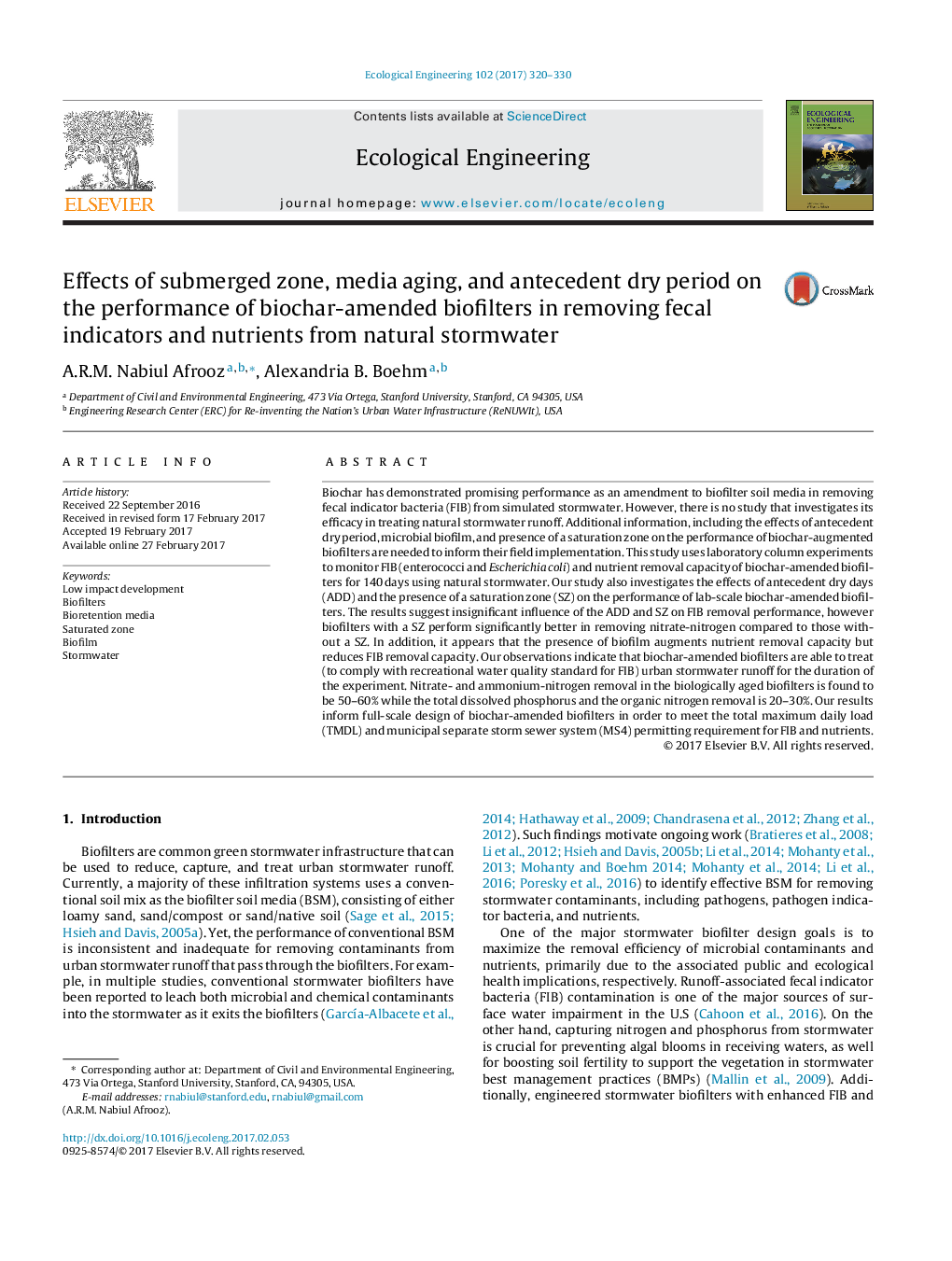| Article ID | Journal | Published Year | Pages | File Type |
|---|---|---|---|---|
| 5743775 | Ecological Engineering | 2017 | 11 Pages |
â¢Long-term (simulated 1 year) performance of biochar-amended biofilters were monitored.â¢The presence of biofilm and submerged zone influences biofilters performances.â¢Biofilm reduces fecal indicator bacteria (FIB) removal but enhances nutrient removal.â¢Submerged zone does not affect FIB removal but enhances nitrate removal.â¢Biofilters remove up to 90% FIB and 60% nitrate after long-term stormwater exposure.
Biochar has demonstrated promising performance as an amendment to biofilter soil media in removing fecal indicator bacteria (FIB) from simulated stormwater. However, there is no study that investigates its efficacy in treating natural stormwater runoff. Additional information, including the effects of antecedent dry period, microbial biofilm, and presence of a saturation zone on the performance of biochar-augmented biofilters are needed to inform their field implementation. This study uses laboratory column experiments to monitor FIB (enterococci and Escherichia coli) and nutrient removal capacity of biochar-amended biofilters for 140Â days using natural stormwater. Our study also investigates the effects of antecedent dry days (ADD) and the presence of a saturation zone (SZ) on the performance of lab-scale biochar-amended biofilters. The results suggest insignificant influence of the ADD and SZ on FIB removal performance, however biofilters with a SZ perform significantly better in removing nitrate-nitrogen compared to those without a SZ. In addition, it appears that the presence of biofilm augments nutrient removal capacity but reduces FIB removal capacity. Our observations indicate that biochar-amended biofilters are able to treat (to comply with recreational water quality standard for FIB) urban stormwater runoff for the duration of the experiment. Nitrate- and ammonium-nitrogen removal in the biologically aged biofilters is found to be 50-60% while the total dissolved phosphorus and the organic nitrogen removal is 20-30%. Our results inform full-scale design of biochar-amended biofilters in order to meet the total maximum daily load (TMDL) and municipal separate storm sewer system (MS4) permitting requirement for FIB and nutrients.
Graphical abstractDownload high-res image (109KB)Download full-size image
